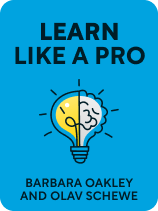

This article is an excerpt from the Shortform book guide to "Learn Like a Pro" by Barbara Oakley and Olav Schewe. Shortform has the world's best summaries and analyses of books you should be reading.
Like this article? Sign up for a free trial here.
What are the limits of your working memory? How can you keep it from getting overloaded?
Whether you’re a student, professional, or lifelong learner, Learn Like a Pro by Barbara Oakley and Olav Schewe can help you become a more effective learner. They provide proven techniques for mastering new skills and knowledge quickly and efficiently, including simple strategies for improving your memory.
Keep reading to learn how to improve your working memory.
The Importance of Working Memory
Before we go over the authors’ advice for how to improve your working memory, let’s discuss why working memory is important for learning. You have two types of memory that work together to help you learn new information and skills—working memory and long-term memory. The authors explain that putting information into your long-term memory is the key to learning, and working memory plays a crucial role in this process.
Full, effective learning happens when information enters and stays in your long-term memory. Before knowledge can enter your long-term memory, it first needs to go through your working memory. Working memory temporarily holds facts, thinks through information, and solves problems. It’s a crucial part of the learning process, but it has limits: Working memory can only hold around three or four thoughts at a time, and if you’re asked to think about more than that, you’ll likely start to forget some of those thoughts.
The authors explain that working memory and long-term memory collaborate in the learning process: The neural links your working memory creates are what eventually enter into your long-term memory once those links have been sufficiently strengthened. Then, those long-term neural links in turn help your working memory operate better: When solving problems or absorbing new information, your working memory reaches into your long-term memory and uses those already established links to connect what you already know with what you’re learning at the moment.
How to Improve Your Working Memory
The authors explain that, if you’re struggling to understand the concepts you’re learning, it’s probably because your working memory is overloaded. You can optimize your working memory while learning complex material with the following tips:
- Simplify the information you’re working with: Think of easier words to describe the concept and focus on the main ideas rather than getting lost in the details.
- Start with the basic ideas: Focus on the foundational concepts and gradually add more details and complexity as you get more comfortable with the basics.
- Write things down: As you focus on your learning task, make lists of other ideas and thoughts that come into your mind that you don’t want to forget. Writing down words to jog your memory means your notes can function as your memory instead of your brain.
| Alternative Ways to Understand and Support Working Memory In A Mind for Numbers, Oakley uses the term choking to describe the struggle to understand a concept due to overloading your working memory, painting a vivid picture of too much information jamming up the processes. As she does in Learn Like a Pro, Oakley recommends that you simplify information by using easier vocabulary and by focusing on basic ideas as ways to avoid choking. As for the technique of writing things down, research supports the effectiveness of using lists and notes as an extension of your brain to free up space in your working memory. The study adds that using digital notes, reminders, and alarms, like those on your smartphone, is a similar method that can help address information overload and help your working memory function better. In other words, you don’t have to physically write things down for this technique to be effective. |

———End of Preview———
Like what you just read? Read the rest of the world's best book summary and analysis of Barbara Oakley and Olav Schewe's "Learn Like a Pro" at Shortform.
Here's what you'll find in our full Learn Like a Pro summary:
- Proven techniques for mastering new skills and knowledge quickly
- How to improve your memory, increase your focus, and manage your time
- Practical tips for how to excel in academic settings






